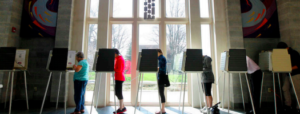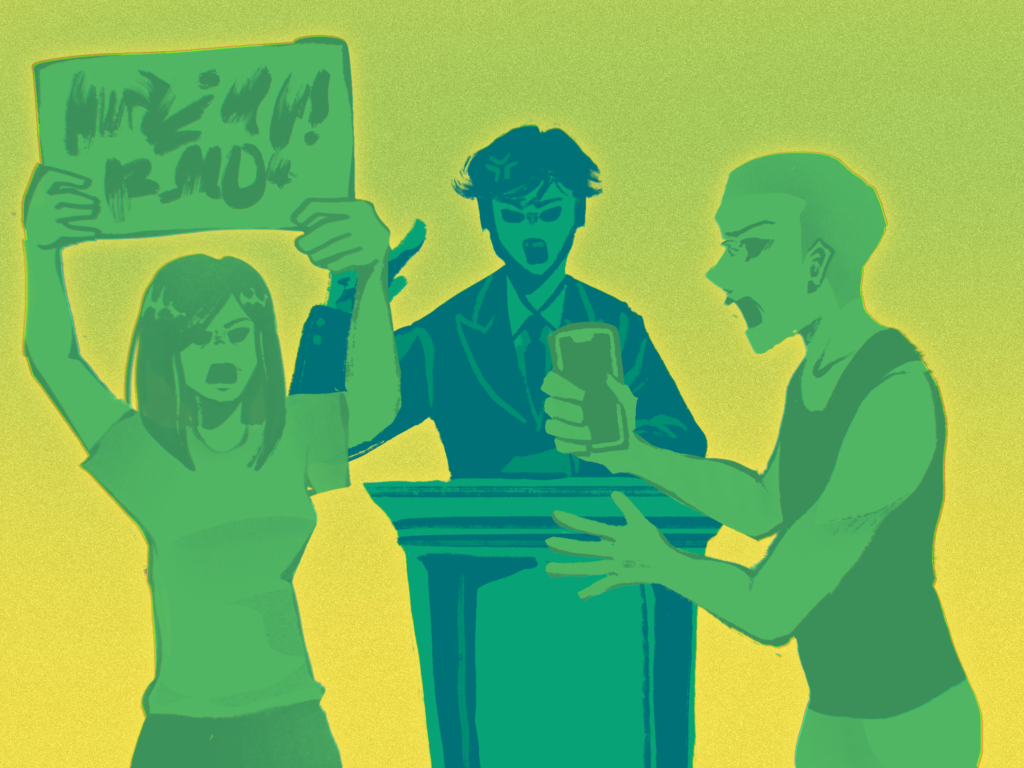Voter turnout rates in the United States are dismal. In the 2016 election, only 56% of eligible voters voted. In non-presidential elections, the turnout is even lower. Why do people abstain from voting? Many voters, particularly those in low-income regions, work hours that preclude them from making it to the polls. Other voters, particularly those in districts where officials restrict voting availability, do not have a polling station nearby. Lack of proximity to a polling station restricts the ability of the elderly and the poor, who may have to ride the bus to get there. The need for a government-issued ID when voting also prevents some citizens from voting since acquiring an ID can be expensive and otherwise challenging. Moreover, some citizens don’t prefer one candidate over another, so they don’t vote at all. Last, there are eligible voters who aren’t interested in politics. Opponents to mandatory voting often say that this last group of voters is uninformed, so they should not be forced to vote. If the government truly believes that its citizens are too uneducated to vote, it needs to focus more resources on educating them.
To determine if voting should be mandatory, we must decide whether voting is a privilege or a civic duty. Privileges are rights that citizens have the option to invoke, such as free speech. Duties include sitting on a jury and military service during a draft. The government requires citizens to participate in these duties to make the continuation of our civil society possible. Voting is a duty, not a privilege. In the words “We the People,” the Constitution makes clear that the American government is the voice of the entirety of the American people. Low turnout rates mean that the government does not represent the views of all adult Americans, undermining the legitimacy of the American government.
Minorities and younger voters are statistically more likely not to vote, thereby reducing the importance of these voters in elections and in politicians’ decisions. According to the Brookings Institute, only 52.7% of minority Americans voted in the 2016 presidential election, compared to 65.3% of white Americans; furthermore, only 46.1% of Americans between 18 and 29 years old voted in 2016 according to the U.S. Census Bureau. An increase in younger voter turnout, for example, might prompt congressional action on reducing the burden of student loans and legislation to prevent school shootings.
Making voting mandatory fundamentally changes the role of voting in the United States. The burden of getting to the polling station would no longer rest fully on the individual; the government will also have a responsibility to ensure ease of access in voting through mail-in ballots, automatic registration, more polling stations, reduced voter ID laws, and transportation. Additionally, the government would most likely declare election day a paid holiday, ensuring that all workers get a chance to vote. Voting should be mandatory because it would enhance the legitimacy of the American government by ensuring that nearly all Americans cast a ballot.





